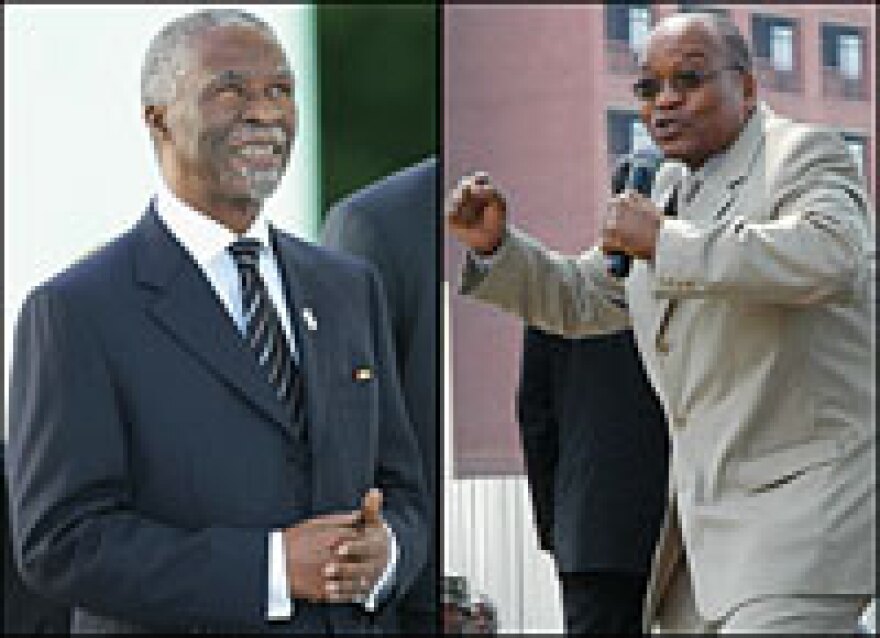
South Africa's ruling African National Congress is in the throes of a leadership battle which, some say, is the party's worst crisis ever.
During a national conference to be held in Polokwane in a little more than a week, party delegates will choose a leader. The intense rift between the candidates — South African President Thabo Mbeki and his one-time deputy president, Jacob Zuma, a charismatic politician who has survived rape charges and corruption allegations — is threatening to cause a split in the ANC.
The party election is almost certain to affect the presidential election in 2009, because the winner is almost certain to win the presidency. Mbeki, who has led the nation for eight years, is constitutionally barred from seeking a third term as president, but it's clear that he wants to ensure that Zuma does not become his successor.
Mbeki fired Zuma from his post as deputy president in June 2005 over corruption allegations. Several months later, Zuma was charged with raping an HIV-positive family friend. Although he was acquitted, he was excoriated by women's rights activists for how he handled the situation.
Despite his controversial past, he has received the endorsement of the ANC Women's League and appears to be the front-runner in the contest for party president.
The provincial nominations say more about Mbeki's weaknesses than Zuma's political strength, according to Moshoeshoe Monare, political editor at the daily Star Newspaper in Johannesburg.
"We must remember, in some ways this was a rejection of Mbeki and not necessarily a popularity vote for Zuma," Monare says. "He has lost touch with the people and concentrated on building an elite class and forgot about the millions who are unemployed, who are living in poverty and so forth."
Mbeki also has alienated veterans of the ANC's military wing, says Ayanda Dlodlo, General Secretary of the Umkhonto We Sizwe Military Veterans Association.
"Some are mentally disabled because there has not been any support program by the state," she says. The group recently endorsed Zuma for party president, explaining that they were looking for fresh thinking.
But longtime political commentator Justice Malala says a Zuma win would cause greater instability.
"What's going to happen post the conference is that President Mbeki will have a new boss and that boss will be looking over his shoulder every minute of the way," Malala says. The fight between the two powers would impede the government from making important decisions, he says.
Others see the leadership battle as a natural part of the evolution of South Africa's young democracy.
"This is a normal process and a process of normalizing after inheriting a legacy of 300 years of colonialism and 48 years of intense apartheid," says Ibrahim Fakir of the Center for Policy Studies.
The ANC conference runs from Dec. 16 to 20.
Copyright 2023 NPR. To see more, visit https://www.npr.org.


